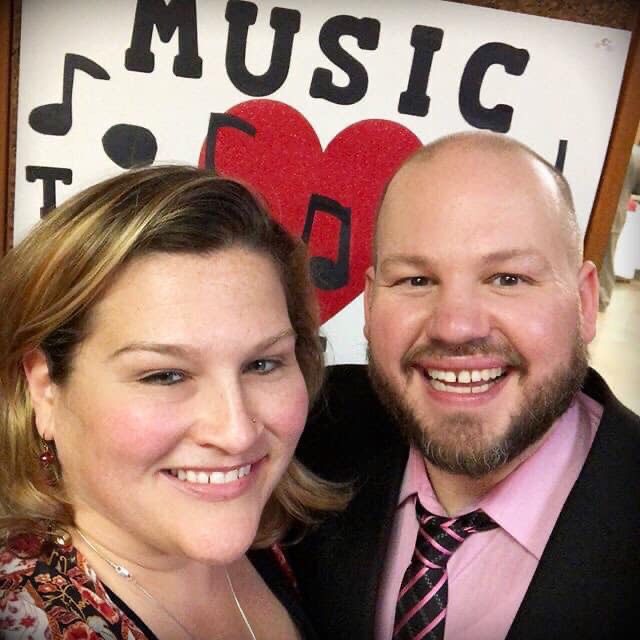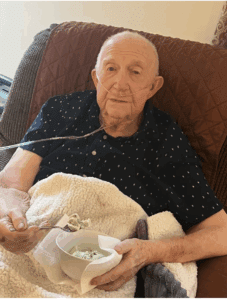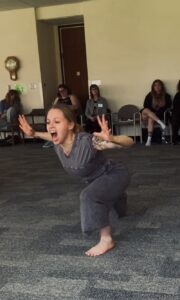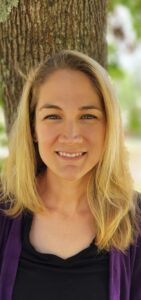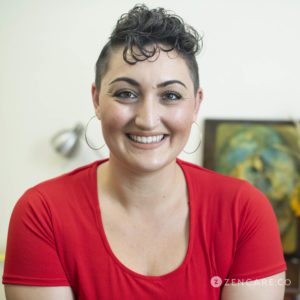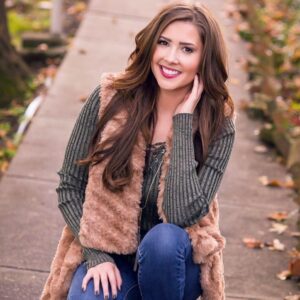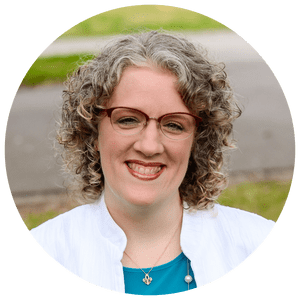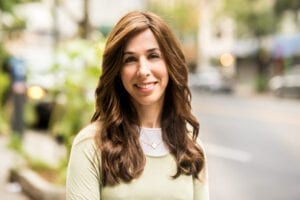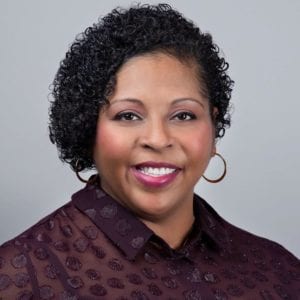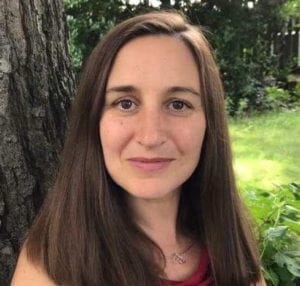This summer, I sat in a chapel run by a major religious order before the Holy Mass where my brother Paul would make his vows of Solemn Profession, his next step on his way to ordination as a Roman Catholic priest next year. A great, conflicting pain overcame me in those moments before the Mass; a pain that says, “You belong here, and you don’t.” The part of me that has always felt at home in a Catholic setting is that love of the ritual and ceremony, the smell of the incense, the familiarity of the chants and songs. When I sink into these, I feel connected to my Croatian ancestors and our Catholic faith. And even though I don’t fully believe every word of the Nicene Creed as it relates to Jesus, I certainly feel connection to Christ Consciousness. I’ve always been cool with Jesus—it’s his followers that can piss me off. And therein exists the other part of me—I am queer (bisexual) and an advocate for other queer and transgender people to live the fullest, most open expressions of themselves in all spaces of life, especially faith-based spaces. As a survivor of several forms of sexual assault and as a trauma specialist who has guided countless other survivors in their healing process over the years, I can’t sit in a Catholic Church and not feel uneasy about the legacy of abuse and silencing survivors within the church. Between my queer identity and dedication to supporting survivors no matter what, I truly feel that I don’t belong.
Two other complicating factors: I love my brother…fiercely. I believe that he is living his vocation and following the call of his heart, and I see in him some glimmer of hope that real healing can exist in the church. The second: This Mass was the first time I had been around so many “church people” in one space since one of my best friends Jason Fair, a gay man riddled with the impact of spiritual abuse due to his sexuality, took his own life at the end of 2019. The initial lockdown kept me away from these kinds of events during 2020 and here I was, dealing with a new layer of grieving him.
So in those moments before the Mass, with all of these deep feelings swirling me into a frenzy, I made a very bold decision: I decided to sing with all of my heart. Literally sing. It would be the only way that I could keep from destructively dissociating and potentially imploding during the Mass. I heard Jason, who was a liturgical musician in several Christian denominations, endorsing this plan within my own heart. The nice thing about Mass in traditional settings is the brilliant schola (Latin chant choir) and in this case it was populated by my brother’s fellow priests and brothers. Adding my voice to theirs somehow felt like my way of saying, “I am a woman, and my voice belongs here too.”
I’ve always loved to sing in both churches I was exposed to as a kid, and being that I can read music well enough, whenever I’m in a church or faith setting of any kind, I’m singing right along. I even do this in Jewish contexts where my friends invite me (as long as there is a version of the Hebrew transposed into phonetic English, I’m singing). And of course, chanting kirtan (call-and-response traditions of ancient India now popular in many yoga and meditation circles), has taken me right to the source of learning about who I really am. All of these experiences have sealed a very important truth within me over the years: God is in the music.
I chanted the Mass setting, Missa Jubilio, not missing a beat of the Latin. Having been a liturgical music director as one of my many jobs back when I worked in Medjugorje, Bosnia-Hercegovina during my service there from 2000-2003, I got quite good at reading it and singing it. And I love it; comfort comes to me through these sacred tones. Even in the days after the 2020 Presidential Election when my tender heart, riddled from four years of a toxic presidency that triggered my trauma wounds in every way, my attorney and good friend Matt Vansuch, who is Russian Orthodox, sent me a playlist of Orthodox chants to help me stay calm. Matt is the kind of person of faith that I am: passionately liberal and traditional. And every night during that week of uncertainty, the Eastern Rite chants helped me sleep like a baby.
I actually felt very good after the Mass, being able to fully engage in the celebratory dinner for my brother because I had just spent close to an hour singing. And then later in the day one of my brother’s very traditional, conservative friends who sat near me during the Mass said, “Wow, you really sing Latin beautifully. I didn’t think that was something you would know how to do.”
Her tone said it all, and my stomach dropped a bit.
Maintaining my calm, I responded, “Well, I do have a background in liturgy, and singing has always been my favorite part of the Mass.”
She politely nodded, not really knowing what to say to that.
What I really wanted to say is, “Yes, queer, liberal, feminist, “non-religious” people can love Jesus too. We can sing. We can talk theology. And maybe even with more gusto than you because we’ve actually used sacred ritual to embrace our human experience, not try to push it away.”
Yet I’ve usually learned that saying such things to people who don’t want to hear them only works me up even more. So I just sing anyway…
Yes, music has long been vital to the ceremonies, ritual, and traditions of religions and the spiritual practices of various communities since the dawn of time. The use of music in this way is perhaps a true cultural universal. Yet I’m not going to misquote St. Augustine or go into a variety of theological teachings on the sacredness of music in spiritual practice because at its core this piece is about more than that. This piece is my love letter to music as a channel of the Divine that has helped to save my life. And even if that language of “Divine” is charged for you, I challenge you to consider where music has, for you, been a healing balm and a vehicle to magical things in your life.
Countless times over the years I’ve heard clients say, “I have my music” when we discuss working with their existing coping skills and building on them. In my current book that I am researching and writing, Dissociation Made Simple: A Stigma-Free Guide to Embracing Your Dissociative Mind and Navigating Daily Life (North Atlantic Books, 2023), the majority of contributors that I interviewed about their experiences of living with dissociative disorders or complex trauma named music as vital to their healing journey. One of the exercises that I do with my clients is to have them develop a “Going Home From Therapy” playlist, inviting them to assemble a collection of grounding and uplifting music that will help them on the drive home or otherwise transitioning to their life after the session. I’ve played with so many ways to bring music into my work with clients over the years, sometimes calling these and other strategies playlist therapy.
Perhaps I feel so passionately about bringing music into the healing process, whether it’s listening to music or making it, because of music’s clear impact on my own recovery. Music was always there in my life: I was trained on the violin from a young age and sang on theatrical stages and in Croatian folk traditions since before I was born. Yes, Mom and Dad met as members of different Croatian folk troupes while at a national festival so it’s not a stretch to say that I am alive because of Croatian folk music and dance. Yet my love of music as a healing vehicle skyrocketed in the first year that I tried to get sober when I learned how to play the guitar. A now-deceased Catholic priest and former Irish rock n’ roller named Ciaran O’Donnell taught me how to make chords on a guitar when we were both serving in Bosnia-Hercegovina. He knew I loved to sing and with having a background in music, he knew that teaching me would be easy, and the memory of these lessons resonates for me more than any Mass I ever attended when I lived there. Practicing the chord repetitions needed for good muscle memory was the perfect activity to keep me occupied as I tried to get sober. And through this gift I then started writing my own music, giving me a powerful vehicle for expression as I worked to heal the impact of my own spiritual abuse.
Spiritual abuse is a phenomenon that I both teach on and am actively recovering from; in sum, it is when God or any other spiritual idea or teaching gets used as a weapon of power and control, usually demeaning others in the process. So on top of all of this Catholic-laden internal drama I’ve given you about myself, now add in the fact that my father converted to Evangelical Christianity formally when I was about five years old. One of the ugliest, anti-LGBTQ+, anti-feminist forms of such Christianity, and…. well, I am me. I always was me, even as a young sprite, even though the teachings in both churches tried to strip it out of me.
So it might surprise you to learn that I keep a playlist on my Spotify account of music from that Evangelical era of my life. More accurately, my good friend Rachel Weaver, who also grew up in a toxic Evangelical context and was herself a praise-and-worship leader, assembled this playlist together as we worked the road together to train others in trauma therapy. We simply call this playlist, “JamieRachelRoots.” When we share hotel spaces together for trainings or go on road trips, it’s not uncommon for us to blast this music at close to full volume and freely dance to it. Sometimes we dance rather provocatively as a symbol of unleashing our femininity outside of that box that others tried to put us in. For Rachel and me, this is a healing practice.
Yet as Rachel and I have both reflected in our sharing, the music was the part of growing up in that kind of church that actually kept us sane. Even though the depths of our beings did not resonate a bit with the theology we were being force-fed, at least we got to sing. And in many Evangelical contexts (and some Charismatic Catholic contexts), dancing and “waving the hands” are permitted and even encouraged. Doing praise and worship was always my favorite part of attending Evangelical services because I got to do the two things I loved the most—sing and dance. Even though a lot of the words and the theology they represent were rubbish, God still found a way to heal my heart.
Through the music…
Rachel shares similar reflections, so of course she was the first person I texted when I experienced this very special moment on the 2019 Spring on Maui retreat with Ram Dass, the last one that he would lead before he left this earth. The teachings of Ram Dass and others in the lineages of yoga and meditation born in India have been vital to helping me heal from the impact of Christian spiritual abuse. Even though these circles can come with their own drama and systemic abuse, for me, they allowed me to find Divine connection in a way that wasn’t loaded with old childhood messaging. And they affirm my true belief that there are so many paths that lead to Divine connection, which is really all about love.
One afternoon as Krishna Das, arguably the West’s most famous kirtan artist, was leading a rousing medley of call-and-response chants which included the Hanuman Chalisa, a sixteenth-century hymn written to honor one of my beacons, the monkey god Hanuman. I’ve learned the Chalisa word-for-word in my years of chanting it, and on this afternoon as I sang, I swayed and danced, and waved my hands up in the air with the fiercest joy that I could muster.
When the chant ended, another attendee came up to me and said, “You grew up Evangelical, didn’t you? I can tell in the way you move.”
I broke down in a holy laughter unlike I had ever experienced.
“Yes, yes I did,” I said to her, “Is it that obvious?”
We shared for a while about our experiences growing up in that context and then getting out of it. Yet in that conversation, I uttered a line that really allowed everything to connect for me: it’s all bhakti.
Bhakti is the yoga of love and devotion. It’s the practices of joy in which we engage—like singing, dancing, and chanting—that gives us that direct pipeline to what the divine is really about… love. And as our beautifully human selves, delving into practices of bhakti can allow us to see how the wonder of our humanity is perhaps the most divine channel for receiving this love and grace. You may access it in a Catholic Church singing hymns, at an Evangelical revival, through a kirtan with Krishna Das, or by blasting Broadway showtunes or jam bands as you drive down the highway. Jason and I did all of these things together (especially the car concerts), and now living on this earth two years without his physical presence, I can attest that I still feel his eternal presence the strongest within my heart when I sing in any form.
All of these practices allow me to soak in my humanity and to find God.
At this point in my healing journey, I am glad to know that they are one in the same.

